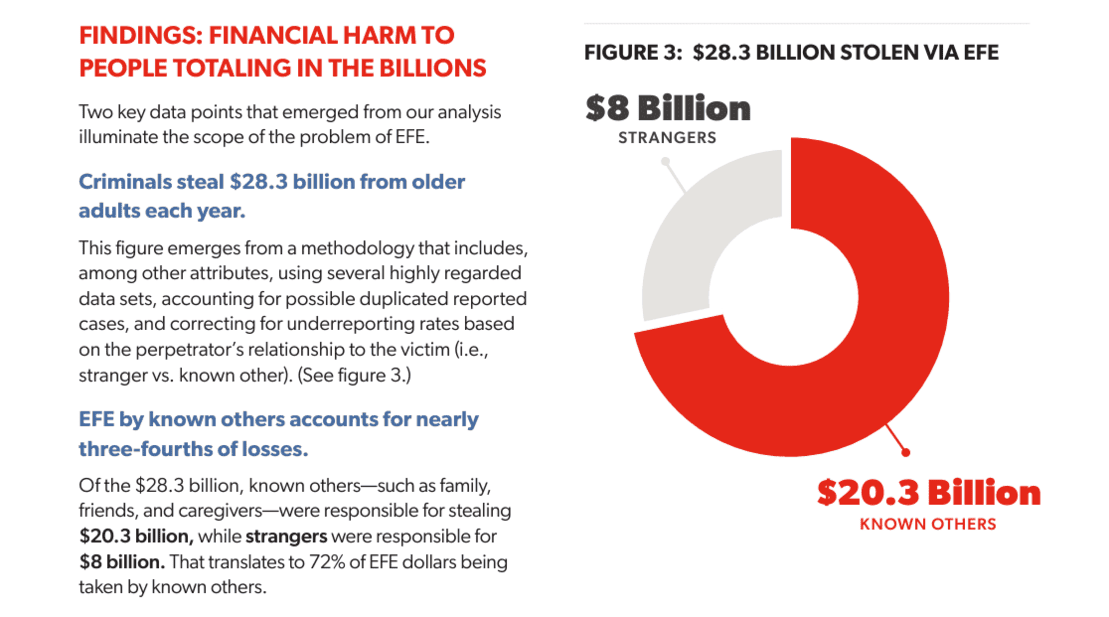How Notaries Can Combat Elder Fraud
As a Notary Public, you hold a unique position of trust in society. Your role goes beyond simply stamping documents; you serve as a guardian of integrity and legality. One area where your expertise is increasingly vital is in protecting seniors from the scourge of elder fraud. In this blog post, we'll delve into the alarming issue of elder fraud and explore how your role as a notary can serve as a frontline defense against this pervasive threat.

Understanding Elder Fraud
Elder fraud encompasses a wide range of deceptive practices specifically targeted at senior citizens. Scammers often prey on the vulnerabilities of older adults, exploiting their trust, isolation, and sometimes cognitive decline for financial gain. The "National Institute of Aging" identifies several common scams, including:
- Government impersonator scams, where individuals pretend to be Medicare representatives seeking account information.
- Fake prize, sweepstakes, and lottery scams, wherein victims are asked to provide money or account details to claim winnings.
- Computer tech support scams, where scammers claim your computer has issues and demand payment for support services.
- The grandparent scam, involving a caller posing as a distressed grandchild or relative.
According to the FBI, seniors are often targeted in these schemes, resulting in substantial financial losses. A recent study conducted by AARP revealed that approximately $28.3 billion is lost annually due to elder fraud scams. Shockingly, 72% of this staggering sum, totaling over $20 billion, is perpetrated by individuals known to the victims, such as family members, friends, or advisors. Alarmingly, many of these scams go unreported. In light of these findings, the FBI is encouraging individuals who come across suspicious online activities to cease engagement and promptly report the conduct to law enforcement agencies.

The Role of Notaries in Protecting Seniors
As a Notary Public, you have a crucial role to play in safeguarding seniors against fraud. Your position as a trusted and impartial witness can help prevent fraudulent activities at various stages of a transaction:
Identity Verification: Verifying the identity of signers is a fundamental duty of a notary. This process helps ensure that individuals are who they claim to be, thereby reducing the risk of identity theft or impersonation scams targeting seniors. Vigilant identity verification is particularly crucial when notarizing documents related to financial transactions or estate planning.
Detecting Coercion or Undue Influence: Elder fraud often involves manipulation or coercion by family members, caregivers, or other individuals seeking to exploit the elder's assets. Notaries are trained to detect signs of undue influence during the notarization process, such as unusual behavior, hesitation, or reluctance on the part of the signer. By remaining alert and asking probing questions when necessary, notaries can help prevent seniors from being coerced into signing documents against their will.
Document Integrity: Ensuring the integrity of documents is another essential function of notaries. By carefully examining the contents of the documents presented for notarization, including legal contracts, wills, and powers of attorney, notaries can identify any suspicious or fraudulent elements. This diligence can prevent seniors from unknowingly signing away their assets or rights to unscrupulous individuals.

Report Elder Fraud
If you have concerns about elder fraud, please don't hesitate to take action by reaching out to the resources listed below. Together, we can strive for a future where seniors can enjoy their golden years with dignity and peace of mind, shielded from the threat of financial exploitation. You can also reach out to your local police department or the attorney general's office in your state or territory. Additionally, you have the option to report the scam to the Federal Trade Commission.
National Elder Fraud Hotline 833-FRAUD-11 for 833-372-8311 https://ovc.ojp.gov/program/stop-elder-fraud/providing-help-restoring-hope


